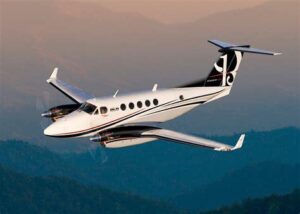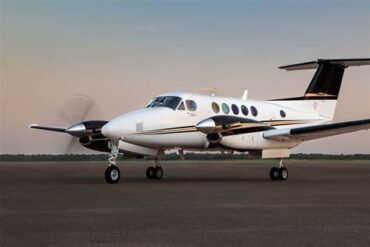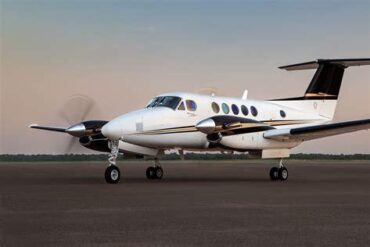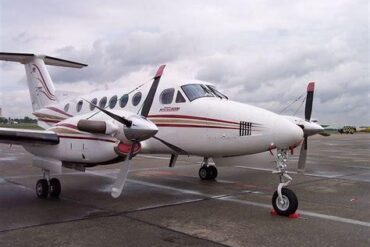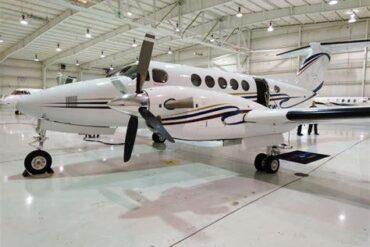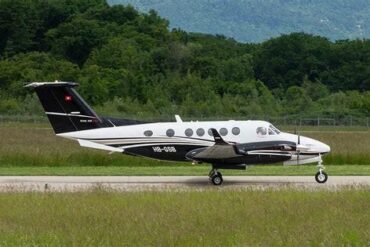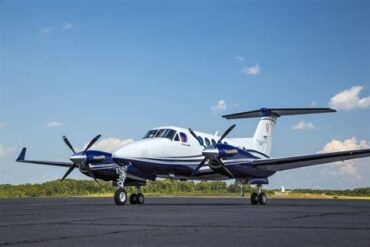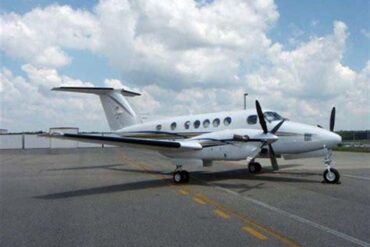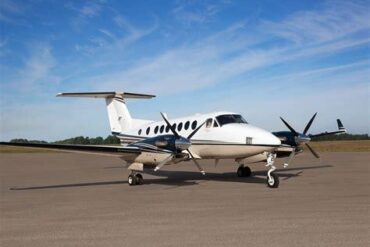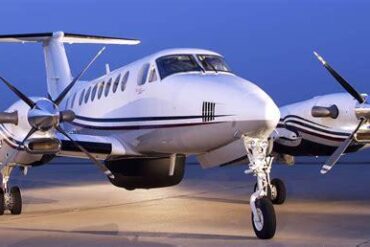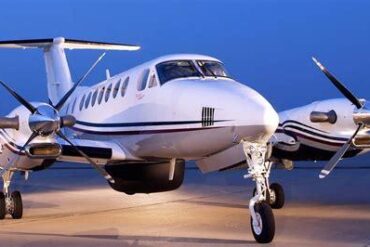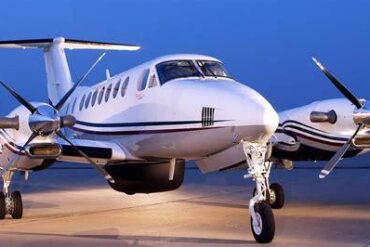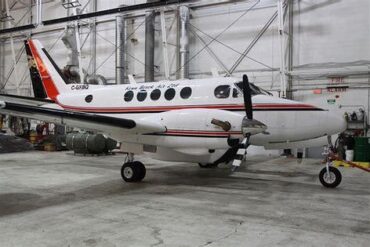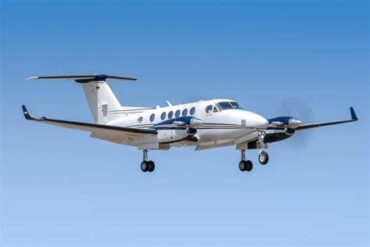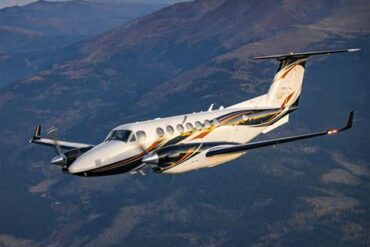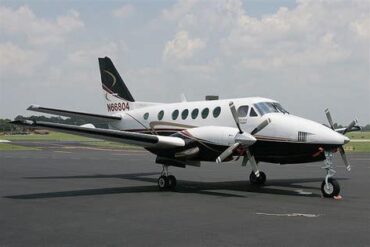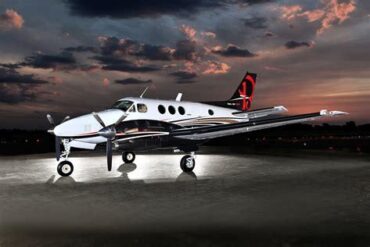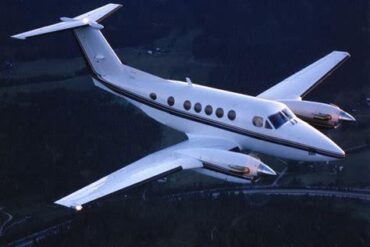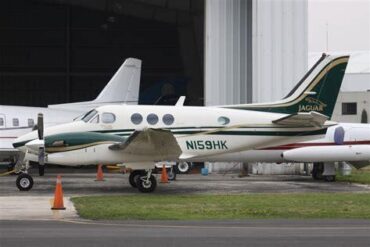The Beechcraft King Air B200 XP61 is a remarkable aircraft that has made its mark in the aviation industry, particularly among business travelers and charter companies. Known for its reliability, performance, and versatility, this twin-turboprop airplane offers a unique blend of comfort and efficiency. In this article, we will delve into the price, operating costs, and other financial aspects associated with owning and operating the King Air B200 XP61, providing a comprehensive understanding for prospective buyers and operators.
Overview of the Beechcraft King Air B200 XP61
Before discussing costs, it is essential to understand what makes the Beechcraft King Air B200 XP61 a popular choice. This aircraft is renowned for its spacious cabin, exceptional range, and impressive speed. With seating for up to nine passengers, it provides ample room for business meetings or leisure travel. The aircraft is powered by Pratt & Whitney Canada PT6A-42 engines, which contribute to its excellent climb rate and operational efficiency.
Performance Specifications
The King Air B200 XP61 boasts impressive performance specifications:
-
Maximum Cruise Speed: Approximately 300 knots (345 mph)
-
Range: Up to 2,000 nautical miles
-
Service Ceiling: 35,000 feet
-
Rate of Climb: 1,800 feet per minute
These specifications make the King Air B200 XP61 suitable for various missions, whether short hops or transcontinental flights.
Acquisition Costs
When considering the purchase of a Beechcraft King Air B200 XP61, potential buyers must evaluate several factors that contribute to the overall acquisition cost. The market price for a used King Air B200 typically ranges from $2 million to $4 million, depending on the year, condition, and installed equipment. New models, equipped with the latest technology and features, may cost significantly more.
Factors Affecting Purchase Price
Several factors influence the purchase price of the Beechcraft King Air B200 XP61:
-
Age of the Aircraft: Older models tend to be less expensive but may require more maintenance.
-
Airframe Hours: Aircraft with lower flight hours are generally priced higher due to less wear and tear.
-
Maintenance History: A well-documented maintenance history can enhance resale value.
-
Avionics Upgrades: Modern avionics systems can significantly increase the aircraft’s value.
-
Exterior and Interior Condition: A well-maintained interior and exterior can command a higher price.
Operating Costs
Once the acquisition costs are established, it’s crucial to consider the operating costs associated with the King Air B200 XP61. Understanding these ongoing expenses is vital for budgeting and overall financial planning.
Direct Operating Costs
Direct operating costs (DOC) encompass all expenses directly related to flying the aircraft. For the King Air B200 XP61, the estimated DOC can be broken down as follows:
-
Fuel Costs: The King Air B200 XP61 burns approximately 50 gallons per hour. With average fuel prices around $5 per gallon, fuel costs can amount to $250 per hour.
-
Maintenance Costs: Routine maintenance and inspections can range from $500 to $1,500 per flight hour, depending on usage and the specific maintenance program selected.
-
Insurance: Insurance costs for the King Air B200 typically range from $15,000 to $25,000 annually, depending on factors such as the pilot’s experience, hull value, and coverage options.
-
Crew Salaries: If operated with a full-time crew, salaries can significantly impact overall costs. Pilot salaries can range from $70,000 to $120,000 annually.
Fixed Operating Costs
In addition to direct operating costs, fixed operating costs must also be accounted for. These costs remain constant regardless of flight hours and include:
-
Hangar Fees: Depending on the location, hangar fees can vary widely but typically range from $1,000 to $3,000 per month.
-
Management Fees: If utilizing a management company, fees can range from 5% to 10% of total operating expenses.
-
Training Costs: Ongoing training for pilots and crew is essential, with costs averaging around $5,000 to $10,000 annually.
Total Estimated Operating Costs
Considering the aforementioned factors, the total estimated operating costs for the Beechcraft King Air B200 XP61 can be summarized as follows:
-
Hourly Operating Cost: Approximately $1,000 to $1,500 per flight hour.
-
Annual Operating Cost: Based on 200 flight hours per year, the total annual operating cost could range from $200,000 to $300,000.
Cost-Benefit Analysis
When evaluating the Beechcraft King Air B200 XP61, it is essential to perform a cost-benefit analysis. This analysis should compare the operating costs against the advantages gained from owning or chartering the aircraft.
Advantages of Owning a King Air B200 XP61
-
Time Savings: Private air travel eliminates the delays associated with commercial airlines, allowing for greater flexibility in scheduling.
-
Comfort and Privacy: The spacious cabin offers a comfortable environment conducive to work or relaxation.
-
Access to Remote Locations: The King Air B200 XP61 can access airports not serviced by commercial airlines, opening new travel opportunities.
-
Tax Benefits: Depending on usage, owners may benefit from tax deductions related to depreciation and operational expenses.
Conclusion
The Beechcraft King Air B200 XP61 represents a significant investment for individuals or companies looking to enhance their travel capabilities. Understanding the price and operating costs associated with this aircraft is crucial for making informed decisions. With its blend of performance, comfort, and operational efficiency, the King Air B200 XP61 continues to be a leading choice in the turboprop market. Whether for personal use or business operations, careful consideration of the financial implications will ensure that this investment yields substantial returns in terms of convenience and productivity.
